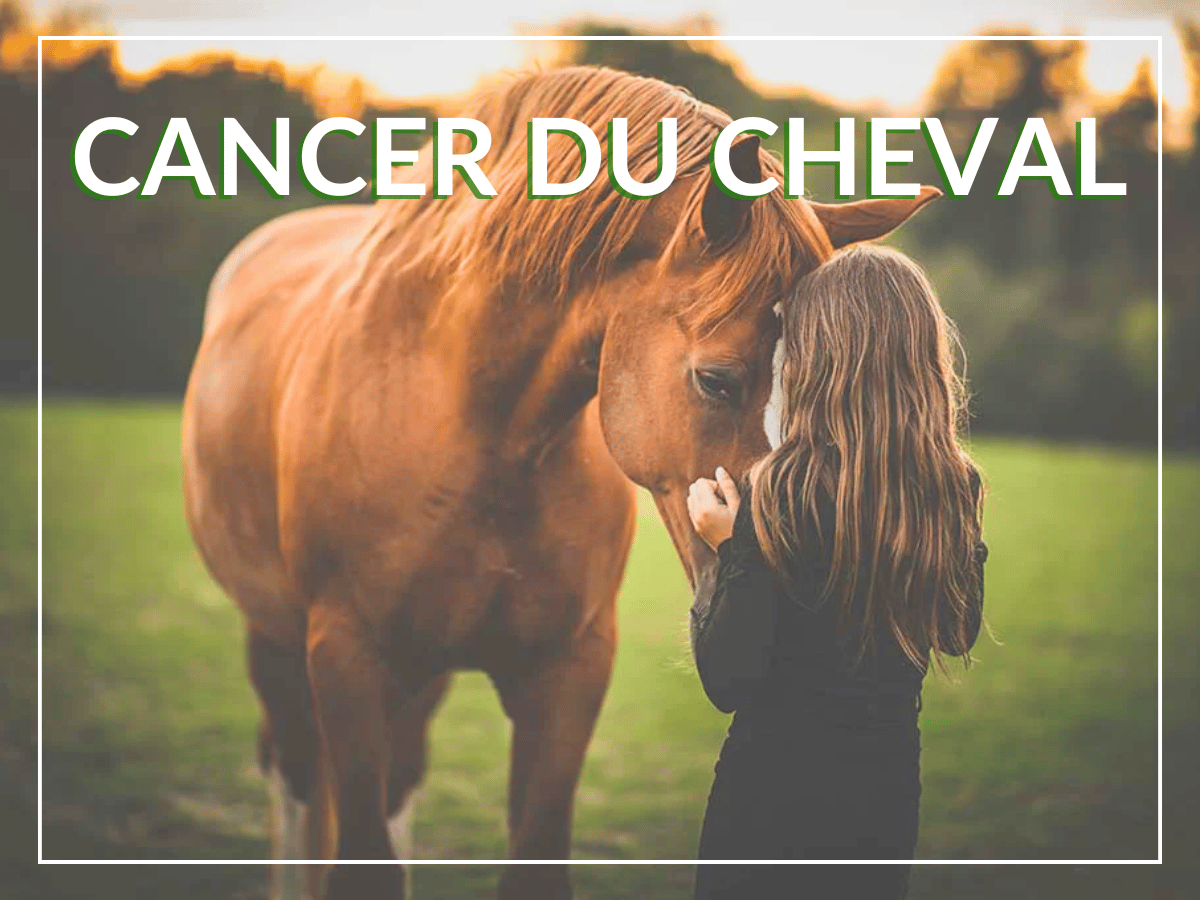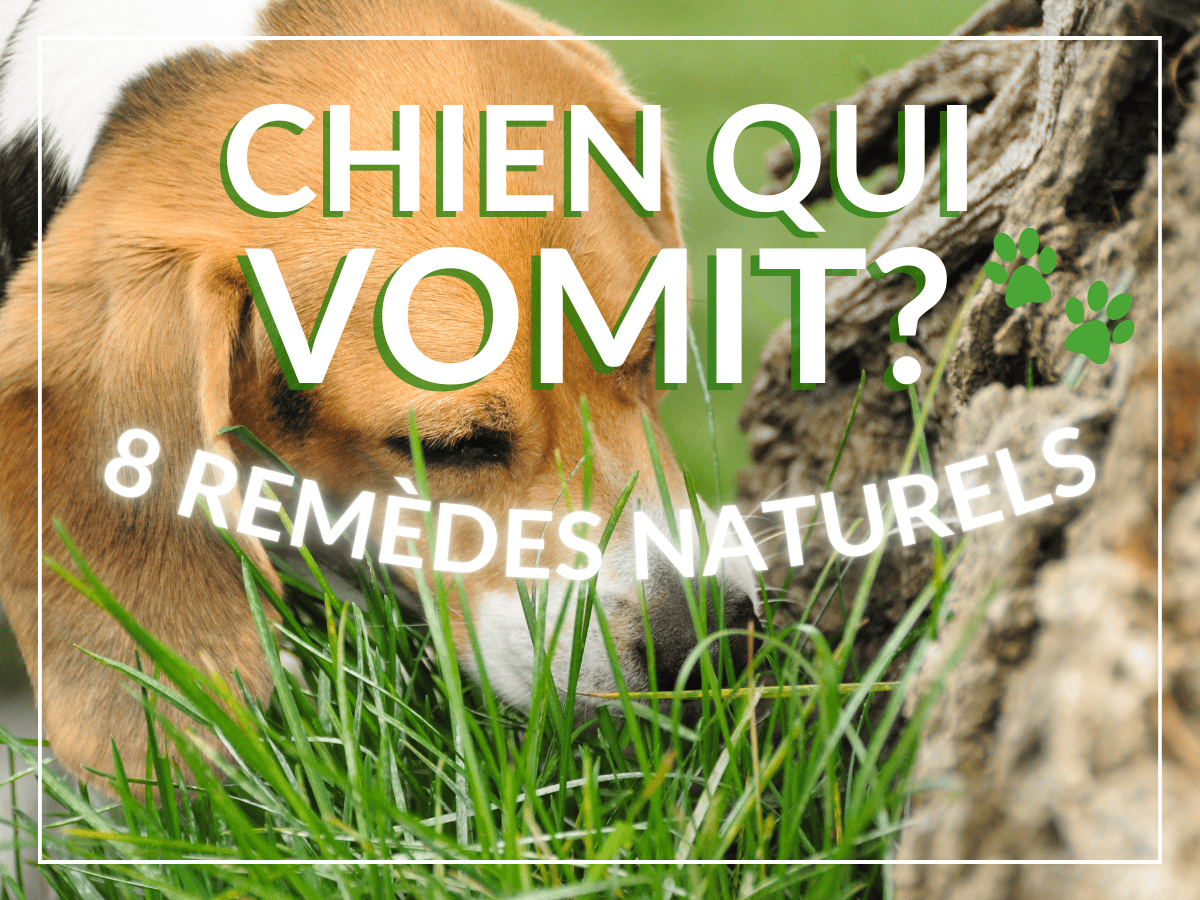
Here are the key takeaways about horse cancer in 2025
Horses, with their wisdom, gentleness, and unparalleled strength of character, have been part of human life for millennia. Throughout the centuries, horses have helped humans in their work and travel while also providing companionship.
Unfortunately, just like humans, dogs, cats, and many others, they too can develop certain forms of cancer that can threaten their longevity. Here is a collection of information on the various types of cancer in horses, their causes and symptoms, as well as some ways to help them in their fight.
- Click to learn more: 👉 Support your horse's health with our NATURAL PRODUCT during its fight against CANCER.🐴
At HomeoAnimo ™, our experts have over 20 years of experience in natural health, and we have helped thousands of pet owners and their companions affected by cancer or tumors.
Let's start by demystifying these diseases, and then we'll see how to promote the health of your horses naturally.
What is cancer in horses?
First of all, it is essential to understand the basics. All cancers form when the normal growth mechanism of the body's cells is disrupted, leading to uncontrolled cell growth and the formation of masses or tumors.
This process disrupts the proper functioning of the body as these masses increase in size, obstruct essential organs, and spread.
These tumors in horses can be internal or external, causing various symptoms.
What are the symptoms of cancer in horses?

Prevention is the best way to help your horse against cancer. Here is how cancer may manifest in your horse:
- Lameness
- Chronic diarrhea
- Weight loss
- Coughing
- Swollen lymph nodes
- Masses
- Bleeding
- Lethargy
- Abdominal distension
- Difficulty urinating
- Loss of appetite
- Behavioral changes
What causes cancer in horses?
As explained above, cancers develop when the body's cells multiply in an uncontrolled manner. As with humans, scientists have difficulty pinpointing the exact causes of cancer in horses.
In the case of melanomas, it has been reported that genetic mutations responsible for coat color in horses may be a possible cause of this type of cancer in them.
At its core, a variety of mutations are responsible for the different types of cancer in horses. Unfortunately, the causes of these mutations are still unknown.
What are the most common types of cancer in horses?

Apart from skin tumors, horses are relatively fortunate in terms of cancer risk compared to humans and small animals. It is a fairly rare diagnosis in them. So let's start by describing this first type of cancer, which is most often diagnosed in these majestic creatures.
1) Skin cancer in horses
Skin cancer can develop in various forms in horses (sarcoids, melanomas, and squamous cell carcinoma). Let me explain the differences.
Sarcoids
Sarcoids are the most common skin tumors in horses, and they are the most frequently diagnosed tumors in horses of all types. That said, sarcoids are generally benign, meaning they do not metastasize. However, they can grow significantly and become bothersome for the animal. On the other hand, melanomas are more dangerous.
Melanomas
Melanomas are usually benign but can, in some cases, become malignant and spread throughout the body (metastasis). These masses are generally firm and dark in color. If your horse has a dark coat, these masses are less noticeable, so it is important to be extra vigilant when brushing to notice any new tumor.
Squamous cell carcinoma
Horses can also develop a type of skin tumor called squamous cell carcinoma. They usually develop in non-pigmented areas of the skin, especially those not covered by hair, such as around the eyes and the genital area.
Which horse color is more likely to develop skin cancer?
Melanomas are most commonly found in gray horses. It is therefore important to monitor your gray horse's skin for any abnormalities and to have it examined by a veterinarian quickly if you notice a new mass.
2) Eye cancer in horses
The most commonly encountered eye cancer in horses is ocular squamous cell carcinoma. It leads to vision loss in the affected eye and can even result in the loss of the eye. Exposure to ultraviolet rays from sunlight is a risk factor for developing cancerous tumors in the horse's eye. Some horse breeds are predisposed to this type of cancer, such as the Haflinger and Appaloosa, among others.
3) Lymphoma in horses
This type of cancer is caused by the transformation of normal lymphocytes in the blood into neoplastic (cancerous) lymphocytes. These cells, when healthy, help the body fight invading microbes through their specific immune response. Lymphoma in horses is therefore a very serious type of cancer.
Lymphosarcoma in horses
Lymphosarcoma can affect various organs, such as the intestines, skin, thoracic cavity, or be generalized. Since horses are very good at hiding their pain, when the animal is diagnosed after showing symptoms, the cancer is often already in an advanced stage, and these individuals usually succumb within 6 months. Lymphosarcoma is a type of diffuse and malignant lymphoma.
4) Reproductive system cancer in horses
Mammary tumors are less common in horses, but when diagnosed, they are rarely benign. Males, on the other hand, may develop testicular or prostate tumors, which are less frequently malignant.
Diagnostic tests and conventional treatments for horse cancer

There are two major steps when a horse is diagnosed with cancer: diagnosis and treatment, both of which can lead to significant costs.
How to diagnose cancer in a horse?
Cytology and biopsy
First, if you notice a mass that appears to be a tumor on your horse's limb, your veterinarian will likely suggest analyzing the cells of that mass. They may aspirate cells using a needle and place them on a slide for microscopic analysis (cytology). This step can be very useful in providing diagnostic clues, but sometimes a biopsy is necessary for more in-depth analysis of abnormal tissue.
Blood tests
Blood tests also provide excellent indicators for an overview of what is happening in the body. If certain organs are functioning less efficiently, it may indicate that the cancer is spreading. If your horse has blood cancer, specific markers can help direct the diagnosis.
Medical imaging
Medical imaging techniques, such as X-rays or magnetic resonance imaging (MRI), may be necessary to determine whether your animal has metastases or masses on internal organs.
What are the conventional treatments for horse cancer?
The main treatment options for cancer in horses are surgical removal of masses, radiation therapy, and chemotherapy. As with small animals, your veterinarian can guide you towards a treatment plan tailored to the type and stage of your horse's cancer.
You understand that most of these therapeutic options involve taking your animal to a veterinary referral center, as smaller veterinary clinics may not necessarily have the facilities or equipment required for radiation therapy or chemotherapy.
Surgery for such a large animal can easily cost several thousand dollars. Chemotherapy can cause side effects, such as hair loss, colic, hypersensitivity, or lethargy, but ultimately can improve the animal's quality of life.
Radiation therapy is often used in conjunction with surgical removal, as it aims to reduce tumor size and prevent the spread of abnormal cells in the body.
Now let's talk about natural remedies!
What natural remedies can be used to support a horse fighting cancer?

Natural remedies, such as homeopathy, herbal medicine, or even energy healing, provide non-invasive support that aims to strengthen the body as a whole. These approaches do not seek to replace veterinary care but rather to work in synergy to:
Boost the Immune System
When a horse is suffering from cancer, its immune system is often weakened, either by the disease itself or by certain conventional treatments. It is therefore essential to strengthen its defenses to help it better cope with cellular aggression and recover more effectively.
Natural remedies such as Echinacea, Astragalus, or even personalized homeopathic formulas can help reactivate the body's natural defenses.
But that's not all: certain medicinal mushrooms, such as Reishi (Ganoderma lucidum), Maitake, or Shiitake, are increasingly used in an integrative approach. These mushrooms contain beta-glucans, polysaccharides known for their ability to stimulate macrophages, NK cells (natural killer), and enhance the immune response.
In horses, these mushrooms can:
-
Improve tolerance to heavy treatments such as surgery or chemotherapy (when used).
-
Reduce systemic inflammation, which is often present in advanced cancer cases.
-
Support weakened organs and help maintain stable vital energy.
For example, Reishi, known as "the mushroom of immortality," is renowned for its antioxidant properties and its support for the liver — a key organ in toxin metabolism and medication processing. It can therefore be very useful in supporting horses with internal cancers (such as liver cancer in horses) or skin cancers (such as sarcoids or melanomas).
Promote Detoxification
The body of a sick horse is often overloaded with toxins, whether due to medical treatments, chronic inflammation, or cellular degradation related to cancer. Natural remedies can facilitate the work of emunctory organs (liver, kidneys, lymphatic system).
For example, plants such as milk thistle or dandelion, combined with specific homeopathic remedies, can help unclog the liver, support digestion, and improve recovery. This also helps reduce fatigue and limit the side effects of certain medications.
Reduce Stress and Inflammation
Cancer often generates significant stress in horses, whether due to pain, medical procedures, or general discomfort. This stress can further weaken their bodies and hinder recovery.
Combined with a soothing environment, these remedies can help your horse regain overall well-being, essential in its fight against the disease.
A Natural Remedy to Promote Your Horse's Health
Many people seek natural treatments or home remedies for their horse's cancer. At HomeoAnimo ™, we invite you to learn more about our 100% natural product, specifically designed to help your animal maintain good health.
 The active ingredient in our natural product, PiptoAnimo (Support for cancer & tumors), is a medicinal mushroom, Piptoporus Betulinus. It helps optimize a healthy immune system. It provides support to animals fighting cancer.
The active ingredient in our natural product, PiptoAnimo (Support for cancer & tumors), is a medicinal mushroom, Piptoporus Betulinus. It helps optimize a healthy immune system. It provides support to animals fighting cancer.
This is an exceptional natural product that also supports conventional cancer treatments, such as chemotherapy. It can be used long-term and also support your animal during remission.
It is used by many veterinarians, homeopaths, breeders, and pet owners in over 80 countries.
You can take a look and read the numerous reviews left by pet owners satisfied with the success they have achieved with this product.
Here is one of their stories:
"Homeoanimo ™ has certainly helped Louie cope with his cancer.
He is still fighting, but he is happy to go out and live a normal life. The oncologist only gave him 6 months to live in December 2019.
Here we are in October 2021. Louie will be 9 years old on the 31st of this month.
I never expected to see this day. So yes, all the remedies Louie has taken are helping him in his daily life."
- Anita
We invite you to read more of these touching stories here.
What is the life expectancy of a horse with cancer?

The life expectancy of a horse with cancer depends on many factors, including the type of cancer, its stage at the time of diagnosis, and how quickly treatment is initiated.
Some types of cancer, such as melanomas in gray horses, can progress slowly over several years without significantly affecting the animal's quality of life. On the other hand, more aggressive cancers, such as lymphoma, can spread rapidly and require immediate intervention.
It is important to note that each horse is unique. Some may respond well to treatments, whether natural or conventional, and continue to enjoy their lives with an acceptable quality of life. Others, however, may see their condition deteriorate rapidly despite receiving care.
Working with a veterinarian, it is possible to make informed decisions to ensure your companion's well-being, whether through treatments, palliative care, or appropriate support.
Conclusion
In conclusion, horses deserve all our attention and care when they are not at their best. You now have more tools to face this challenge, and we wish you the best of luck with your companion.
Have you ever faced this battle with one of your horses? If you'd like, share their story with us in the comments below.
If you are worried that your animal may be suffering from a health problem, our Free Animal Health Recommendation can help. In addition to getting advice and recommendations from our Natural Health Advisors, they will also guide you through the products and treatment options best suited to your animal's health needs.

























2 comments
Bonjour, nous tenons à vous faire part de notre profonde affliction et nous vous envoyons toutes nos condoléances pour votre pur-sang. Pour ce qui est de votre jument, nous allons vous envoyer un mail. Nous vous souhaitons bon courage pour ce moment difficile. Bien à vous!
Homéoanimo
Nous avons appris que ma jument de 26ans est atteinte d’un cancer du foie… Et q’un pur-sang serait déjà mort… seulement vu que c’est un trait comtois, elle ne ressent la douleur que moins fortes… Nous devons l’euthanasié aujourd’hui..
Corporandy
Leave a comment
This site is protected by hCaptcha and the hCaptcha Privacy Policy and Terms of Service apply.